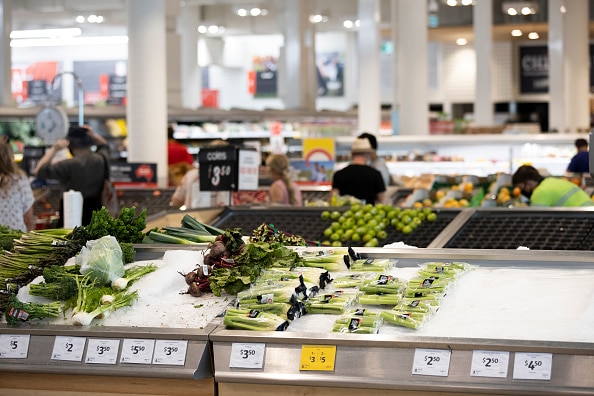While national supply chain issues have seen supermarket shelves swept bare across Australia’s eastern seaboard, Canberra’s stocks have remained relatively unscathed so far, unless you’re after chicken.
Supermarkets in various parts of Queensland, Victoria and NSW have been overwhelmed by panic-buying lately, just as transport and logistics companies and suppliers are hit by significant numbers of workers calling in sick or dealing with tough COVID-19 quarantine rules.
Domenic Costanzo, owner of The Barton Grocer, told ABC Radio Canberra’s Breakfast this morning that the national supply chain issues have only affected a handful of his chicken and meat suppliers in Sydney, that are currently experiencing staffing shortages.
“Most of their workforce is at home in quarantine or affected by COVID, so we’ve not got a lot of chicken,” he said.
“Everyone’s I think in the same boat, and most in that area of supplying are the same.”
While stock levels locally are fine by and large, staffing issues have been prevalent among Canberra supermarkets during the outbreak.
Both Mr Costanzo and Yarralumla IGA store manager Yvonne Dourdoulakis currently have a few staff members out of action in quarantine.
“It is hard,” Ms Dourdoulakis said, “luckily it’s the school holidays so you’ve got a bit more staff you can utilise.”
Guidelines issued by the Australian Health Protection Principal Committee have changed the definition of close contacts for those exposed to COVID-19 working in critical food and grocery production, manufacturing, logistics and distribution facilities.
Under the new guidelines, there is now a distinction between those deemed as high risk contacts and low risk contacts.
Those who are deemed to be at low risk will still be required to be assessed after symptoms each day and undergo testing, but will be allowed to continue to work in those non-public-facing roles in food and grocery distribution.
If a person working in that industry is diagnosed with COVID-19, either through a PCR test or a rapid antigen test, that person needs to isolate at home, and the same applies to their close contacts – to their household contacts.
Those rules won’t apply to public-facing roles such as supermarket checkout operators.
Ms Dourdoulakis predicted the change in quarantine requirements for those working in the food and grocery sector will see things settle down over the next few weeks.
“It’s not a shortage of products as it is, it’s a shortage of people and transport,” she said.
Australia’s Chief Medical Officer Paul Kelly said the change in guidelines was a “reasonable step” allowing a balance to be found between reducing transmission of the virus and keeping enough workers in place to shore up food and grocery supply chains.
Other industries could soon follow suit, including aviation, with some premiers also seeking new rules to cover the hospitality and catering industries.
With AAP.
Get all the latest Canberra news, sport, entertainment, lifestyle, competitions and more delivered straight to your inbox with the Canberra Daily Daily Newsletter. Sign up here.



